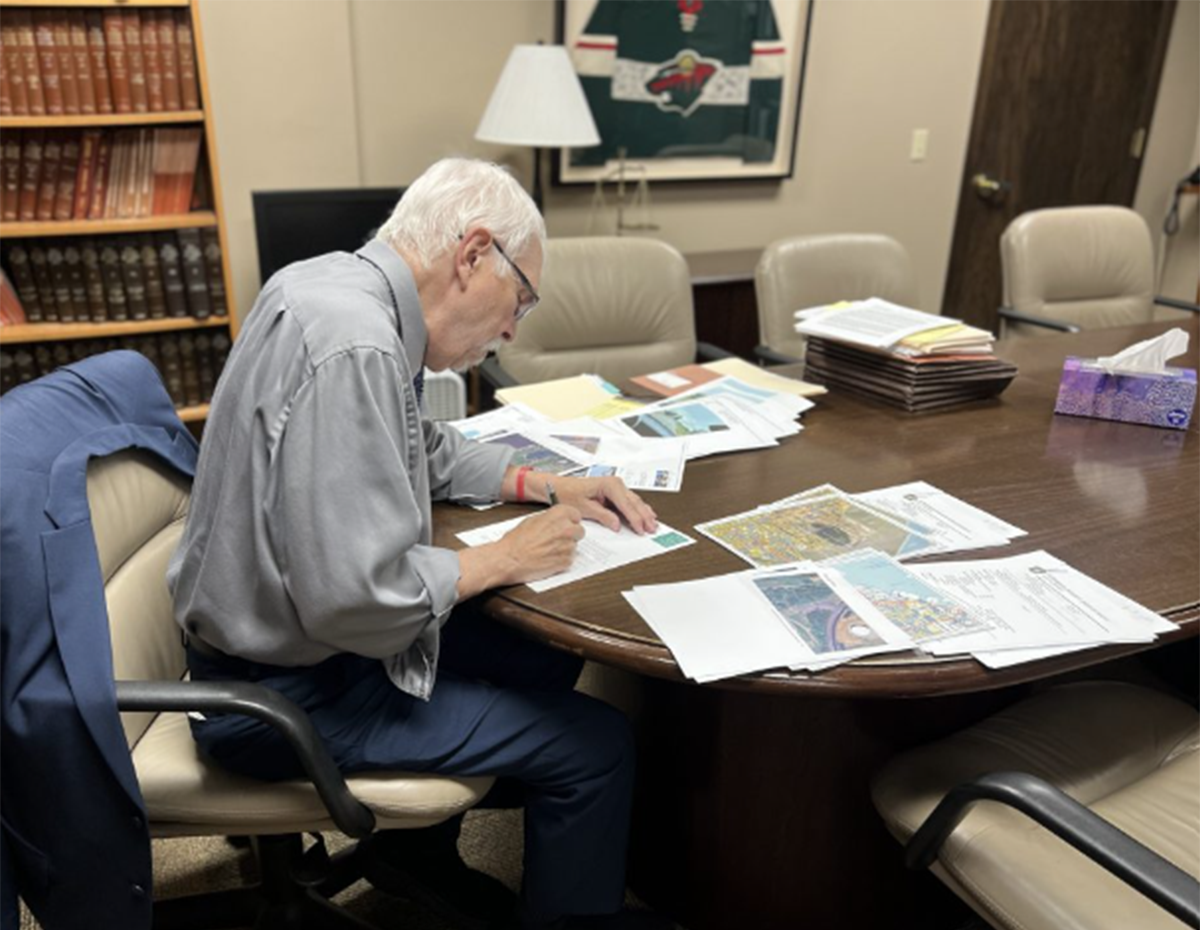Four topics were up for discussion as students and faculty members gathered in Davies Center Monday, but the most debated issue, the religious service learning ban, took center stage.
About 45 students and 10 professors attended.
The topics at the second Chancellors Roundtable of the year included the exclusivity of Sodexho, a riverbank project update, the possibility of coed residence hall wings and the religious service learning ban.
Chancellor Donald Mash said topics were chosen because they were current and of interest to students.
Andrew Soll, vice chancellor of the Business and Student Services department, began by discussing the exclusivity of Sodexho.
It has been a feature of UW-Eau Claire for several decades to contract out exclusive rights for dining services, he said.
Eau Claire does this for a number of reasons, including concerns about health issues and sanitation, as well as financial concern, Soll said.
With exclusivity, the company offers the campus a lower price and better meals, he said.
“For any manual food service on campus, our campus contractor has exclusive rights,” Soll said.
Soll also commented on the completion of the rivers project.
If the weather holds out, there is a chance the construction will end, allowing Garfield Avenue and Putnam parking lot to fully re-open before winter begins, he said.
Within the next couple of weeks, he said, plants may be planted along the riverbank.
Chuck Major, director of University Housing and Residence Life, spoke next about the possibility of coed residence hall wings.
The idea is called “scattered housing,” meaning there would be male and female rooms on the same wing, he said.
Of the 13 four-year universities in Wisconsin, 11 have implemented this in certain residence halls, Major said.
Since there would need to be two bathrooms on each floor, the two Towers Halls would house such wings if it were tried here, he said.
These issues, however, provoked little discussion among students.
Most in attendance were there to discuss the religious service learning ban.
Mash briefly described the origins of the ban. He said it was originally banned because a faculty member in 2001 saw a promotion for a specific service learning opportunity.
The faculty member brought up the fact that maybe Eau Claire shouldn’t be promoting religion at a public university.
Although religious services are admirable, they can’t satisfy conditions of the service learning requirement, Mash said.
Kent Syverson, chair of the Academic Policies Committee, said that to meet the service learning requirement, a project has to have the following criteria: It must pertain to either the students’ major or minor, or it needs to contribute somehow to one of the nine goals of the baccalaureate degree, he said.
Junior Brian Martin said he strongly disagreed with the ban. One of his major points was the current wording of the ban.
Within the context of the ban, it states that people “generally agree upon” the issue of the ban, he said. This obviously isn’t true since there is so much debate about it right now, Martin said.
“If the goal of the service learning requirement is to teach students through service,” he said, “I can’t see a better way for me to learn than by working directly with a religious organization.”
Martin said he is planning to become a pastor.
The University Senate discussed the topic Tuesday. A vote on the ban is on the agenda for its Nov. 23 meeting.
After it makes a decision, the verdict will be sent to Mash for either approval or rejection.
“Service learning causes students to engage in service,” Mash said. “It is our hope that students will want to engage in service for the rest of their lives.”






